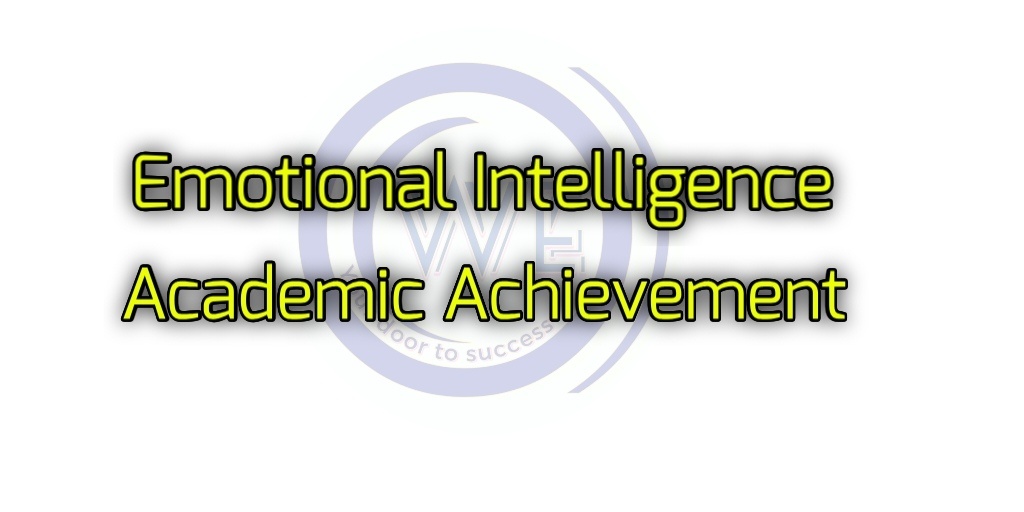Introduction of emotional intelligence:-
Table of Contents
Our Emotions Play a Significant Role in guiding & directing our behavior. If a person has no emotion in him, then he becomes crippled in terms of living his life in a normal way. It plays a key role in providing a particular direction to our behavior & shaping our personality, according to their development. It is very much essential to develop the right attitude and be equipped with emotional intelligence to handle the complexities of life & quality education that adversely affect one`s academic achievement.
In this first pacing world of virtual reality the traditional ways of living are phasing out quickly leaving be youngest in great distress & confusion on how to handle their in ability to deal with themselves in their emotional highs and low is having serious repercussions on their personality, academic goal & life as a whole historically. In education, emotions have been thought to be peripheral to the process of learning. Recent research, however, has begun to indicate that emotional intelligence is a necessary component of any educational community. It has been defined by Elias as a set of skills necessary for effective social interaction & classroom success:
- Emotional recognition & regulation.
- Self-control.
- Goal-setting.
- Social responsibility.
- Empathy.
- Problem-Solving.
- Conflict resolution.
- Skills needed for leadership & effective group participation.
An increased interest in research in the area of emotional intelligence has led to a quest for a strong empirical case connecting the measurement of social & emotional learning programs that teach EI to improved school behavior & academic performance. Educational programs that focus on SEL generally instruct children with a curriculum designed to help them understand & use EL abilities.
Review of Related Literature:
(i) Molla, M.K (2018) Conduct a study named `Emotional Intelligence & Academic Achievement Motivation among College Students
(ii) Arul, Lawrence A.S & Deepa (2013) Conducted a study named as `Emotional Intelligence & Academic Achievement of students at the high school in Kanyakumari district.
(iii) Chamundeswari, Dr. S, (2013) Conducted a study named as emotional intelligence & academic achievement of students at the Higher secondary level.
(iv) Fatum, Barbara A, (2018) Conducted a study named as the relationship between emotional intelligence & academic achievement in elementary School Children.
Rational Of the Study:
Some Student is not aware of their emotions. So that commits a mistake. They become unable to make the right decision. Basically, youngsters are found in great distress & confused about how to handle their emotions. So there is a need to know about emotional intelligence to overcome the confusing situation.
The objective of the Study:-
The Following objectives are Formulated for the presents study:-
- To find out the relationship between emotional intelligence & Academic achievement motivation.
- To compare the emotional intelligence of male & female college students.
- To compare the academic achievement between male & female college students.
- To find out the relationship between male & female students with respect to academic achievements.
Delimitation of the Study
The study is delimited to-
- All the graduate students of the Balasore District of the state ODISHA.
Statement of the problem
The Study is formally entitled “Relationship between emotional intelligence & academic achievement of graduate students”
Operational Definition
Emotion: – Means a Strong feeling that is derived from one`s circumstance mood or relationship with others.
Feelings: – Something that you feel in your mind or body.
Emotional Intelligence: – Emotional Intelligence refers to the capacity of a person to manage & control his or her emotional & possess the ability to control the emotion of others.
Graduate Student: – Someone who has already a bachelor’s degree or who has been admitted a college or university for a bachelor’s degree.
Academic Achievement
Academic achievement is the outcome of education, that extends to which a student, a teacher & an institution have achieved their educational goals.
Methodology of the Study
The research methodology describes how the study was conducted. It includes; research, design, study population, sample & sample size. Methods of data collection, method data analysis & anticipation of the study. It provides the overall structure for the procedure that the researcher conducts. This involves planning. It is a plan with the central goal of solving the research problem in mind.
Sample: – The researcher adopted the purposive technique & selected two different general degree colleges & total of 100 college students were selected as samples from these two colleges.
Tool to be used
The following tools to be adopted for the study.
- Mangal Emotional Intelligence Inventory (2004) was used to collect the data.
Data Collection
The researcher will collect the relevant data personally from the sample by using the standardized tool prepares by the mangal emotional intelligence inventory (2004). Further relevant data that is regarding the academic achievement of the student will by collected by checking the grade sheet record of the students.
Data analysis & interpretation
Both descriptive & referential statistics were used for the analysis of data. Descriptive analysis was conducted to describe the demographic background of respondents as well as determine the level of emotional intelligence among the respondents.
On the other hand, referential statistics is used to establish the relationship between independent & dependent variables.
Implication
It is very much essential for educational institution heads, teaching faculties & other to develop positive emotional skills among the youths in form of creating an approach.
- Self-awareness: – teaching students to recognize their own emotions & how they affect their thoughts & behavior know their strengths & weakness & have self-confidence.
- Self-management:- teach them to control implosive feelings & behaviors, manage their emotions in a healthy way, take initiative follow through on commitments & adapt to changing circumstances.
- Relationship management:- the stakeholder has to educate to develop an understanding of how to develop & maintain good relationships, communicate clearly, inspire an influence others, work well in the term, & manage conflict.
Reference
- Chamundeswari, Dr.S (2013) “Emotional intelligence & academic achievement among students at the Higher Secondary Level,” V-2 (4).
- Fatum, Barbara. A (2008). “The relationship between emotional achievements in elementary school children”. Doctoral dissertation 265.
- Kolachina, Dr. Aruna (2014). “Impact of emotional intelligence on academic achievement of expatriate college students in Dubai”. USSHR. V-2.




